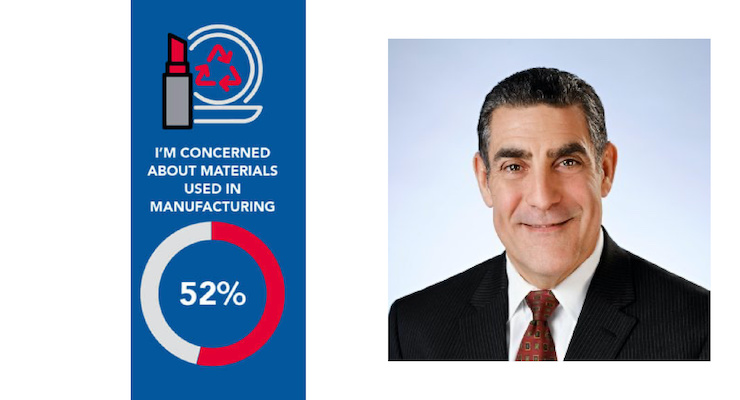Paul Magel, President, Business Applications division, CGS10.04.21
Some of the industry’s biggest brand names are putting a stronger focus on the ingredients included in their cosmetic and hygiene products.
Kylie Cosmetics relaunched its brand with a cleaner formula, Arianna Grande’s newest fragrance is made with 91% naturally derived ingredients, and the trend is even lending itself to baby hygiene products as Gabrielle Union and Dwyane Wade launch a clean children’s personal care brand called Proudly.
But what’s driving some of the largest names in personal products and cosmetics to focus so much on clean beauty?
Americans want American-made products
From the Gen Z teenagers choosing eyeliner in Sephora to the Baby Boomers sampling perfumes in Macy’s, shopping for Made in America, eco-friendly, and clean products are top of mind for consumers of all generations.Celebrity partnerships and flashy packaging are no longer enough to capture consumers’ attention. New data from our 2021 CGS State of the U.S. eCommerce Consumer Survey shows that 63% of consumers want personal products and cosmetics to be made within the United States with 52% citing materials used in manufacturing as the reasoning.
Younger generations are driving the sustainable and clean beauty movement
Though all generations are contributing to this movement, brands should not underestimate the power of the up-and-coming Gen Z and the eco-minded Millennial. These generations are shopping with retailers and brands that value clean ingredients and share similar values when it comes to the ecological impact.Our survey found that 44% of Gen Z consumers prefer cosmetic and hygiene products to be American-made because of concerns about the ingredients; only 19% say it’s for environmental reasons. Meanwhile, almost one-quarter of Millennials want American-made products to lessen carbon emissions and reduce waste. But similar to Gen Z, 44% claim the reasoning is due to the ingredients.
While younger generations have been in the forefront of shopping for eco-friendly brands, the data shows they’re not the only ones pushing this trend – more than half of Baby Boomers prefer that cosmetics are made sustainably and 55% of all women agree.
Sustainability will be a major factor in the eCommerce race
While some consumers are considering returning to stores, many feel e-commerce is the only suitable option for the near-term. Over 40% of consumers in the U.S. and U.K. said that they plan to exclusively shop online even as stores reopen, according to an additional survey of ours.With e-commerce still going strong, brands must take a closer look at their back-end sustainability practices, such as shipping and packaging. Automating the back-end supply chain with e-commerce integrations can provide a brand with the ability to meet customers' omnichannel needs while making fast-paced growth possible and sustainable. According to the data, 47% of U.S. respondents consider whether a retailer’s shipping and packaging is eco-friendly when making a purchase at least some of the time—thus, illustrating that more than just the ingredients need to be clean and sustainable.
As more consumers adjust their shopping preferences, brands and retailers should re-evaluate their end-to-end sustainability practices – from material sourcing to product packaging. This will be a major component of the customer experience and a way to ensure brand loyalty.
With sustainability and supply chain disruptions top of mind this year, it appears an American-made revolution is on the horizon, if not already here. Brands looking to keep up with younger generations—as well as older ones—need to rethink their ingredients and manufacturing process. There is a hunger for American-made cosmetic and personal products if it means cleaner formulas and less environmental impact. The most successful brands will be the ones that take a note from the celebrity-labelled brands mentioned above.













